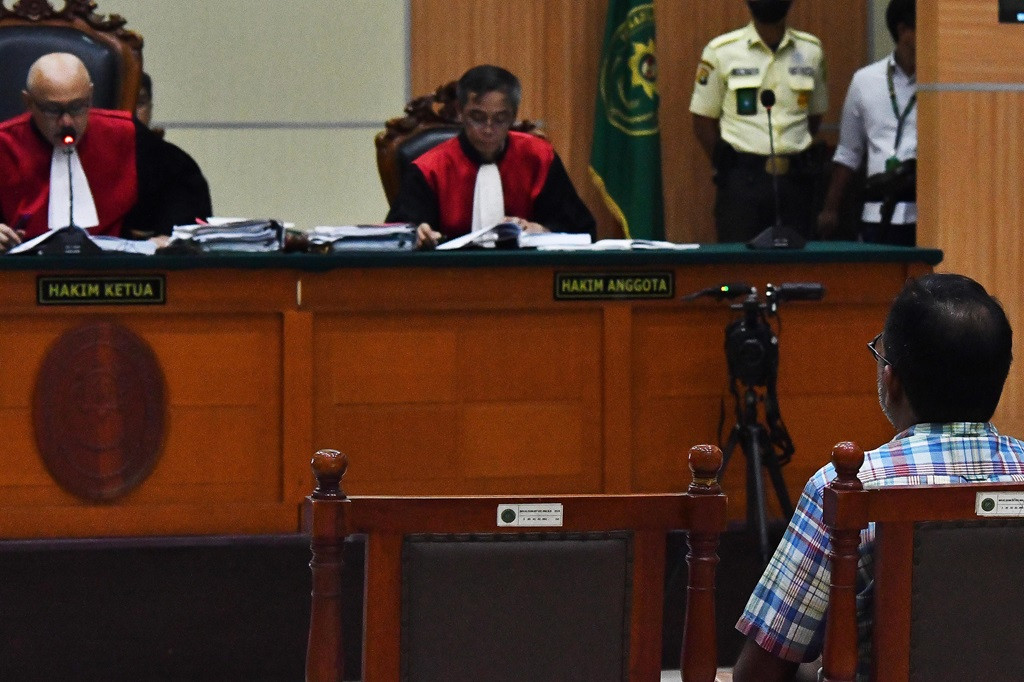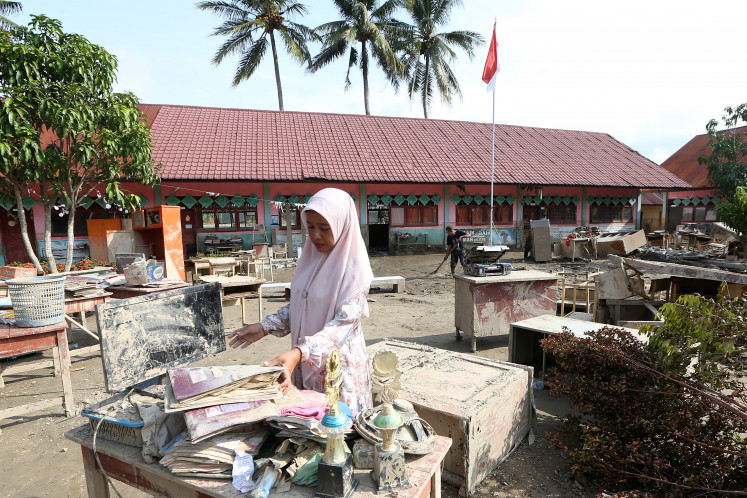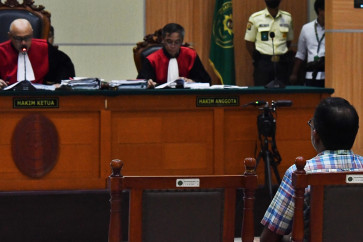Popular Reads
Top Results
Can't find what you're looking for?
View all search resultsPopular Reads
Top Results
Can't find what you're looking for?
View all search resultsTackling information disorder calls for more than stricter regulation
The lack of clarity on which type of information disorder is punishable in the ITE Law risks widespread criminalization of members of the public amid the country’s low information literacy.
Change text size
Gift Premium Articles
to Anyone
 Lokataru Foundation director Haris Azhar listens to the judge during a hearing at the East Jakarta District Court on Nov. 13, 2023. Prosecutors demanded the judges sentence Haris to four years in prison and a Rp 1 million (US$63.7) fine for defaming Coordinating Maritime Affairs and Investment Minister Luhut Pandjaitan in a video uploaded to YouTube. (Antara/Fakhri Hermansyah) (Antara/Fakhri Hermansyah)
Lokataru Foundation director Haris Azhar listens to the judge during a hearing at the East Jakarta District Court on Nov. 13, 2023. Prosecutors demanded the judges sentence Haris to four years in prison and a Rp 1 million (US$63.7) fine for defaming Coordinating Maritime Affairs and Investment Minister Luhut Pandjaitan in a video uploaded to YouTube. (Antara/Fakhri Hermansyah) (Antara/Fakhri Hermansyah)
A
head of the Feb. 14, 2024 elections online civic space in the country has been increasingly polluted by misinformation and disinformation, which undermine electoral integrity. The banal exposure to misinformation spreading across digital platforms and in various forms, as well as the proliferation of its social influence, has resulted in a decline in public faith in mainstream media and democratic institutions.
Amid this conundrum, the Working Committee (Panja) of House of Representatives Commission I and the government have finalized the second revision of the Information and Electronic Transactions (ITE) Law, after about six months of deliberation. A House plenary has been arranged reportedly this week to pass the amended law.
While civil society has long advocated for an overhaul of the law due to its articles that are open to multiple interpretation and which have frequently been used to silence critics; obsolete provisions vis-à-vis current developments in digital technology and the internet; and the lack of a mandate for judicial scrutiny over the government’s decisions to request access takedown; the ongoing process only deals with several provisions and has been conducted mostly behind closed doors.
This revision thus can be described as a missed opportunity and a potential threat to the democratic process leading to the elections.
The ITE Law stipulates that spreading hoax/fake news is a crime that is punishable by a prison sentence of up to six years and/or a fine of up to Rp1 billion (US$64,700). However, the law does not clearly define what constitutes fake news, and how it differs from other types of information disorder, such as misinformation, disinformation and malinformation.
Classifying the different types of information disorder as the same is problematic, if not misguided, because while both disinformation and malinformation are spread with malicious intention, misinformation refers to the spread of false information without the intention to mislead.
The lack of clarity on which type of information disorder is punishable in the ITE Law risks widespread criminalization of members of the public given the country’s low information literacy. It is therefore important that the ITE Law considers intent and risks based on the level of real-world material harm caused by the spread of information disorder in defining sanctions against the agents of information disorder.


















